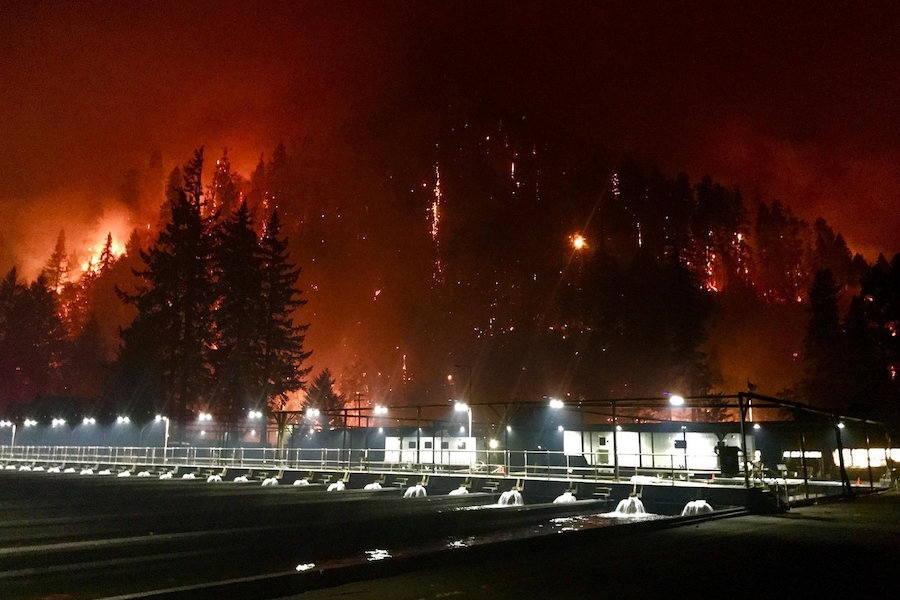Private sector seeks solutions to declining snowpack, wildfires, and water scarcity.
Prone to dramatic statements, Sen. Ron Wyden did not mince words describing the Fourth National Climate Assessment, a White House report on the impacts of climate change on the U.S., from the stage of the 2018 Oregon Leadership Summit on Monday. He told the audience of business leaders, lobbyists and policymakers at the annual conference, “Oregon is going to get hit like a freight train by climate change.”
Businesses have already suffered heavy losses from declining water tables, melting snowpacks and ferocious wildfires. For the state’s ski resorts, the difference between a high- and low-snow year can mean 2,100 fewer employees and a $173 million drop in revenue. In 2017, the tourism sector lost out on $51 million of revenue due to wildfire smoke. Ocean acidification has damaged harvests for crabbers and oyster farms. The state’s dams, levies and pipes are desperately in need of a $7.6 billion overhaul, even as flooding worsens.
“Climate change is far worse than we thought,” said Matt Donegan, a consultant who spoke to the summit crowd about forest management issues, “and it’s going to get worse going ahead.”
Although some federal officials continue to deny the existence of man-made climate change, the tone of the leadership summit showed that Oregon policymakers and business leaders have largely come to a consensus that the threat is real. The conversation has shifted to adaptation. Large-scale solutions will demand large public and private investment and urban-rural collaboration.
Related Story: Lawmakers and business leaders take on cap and invest proposals
Some business leaders are thinking ahead and calling for action. “We have the tools,” Donegan said. “We just need to scale up.”
The private sector is poised to provide many of the solutions. Businesses seek to combat wildfire through forest thinning, biofuels projects that repurpose dead wood, and public-private forest collaboratives between environmentalists and loggers. Vinters are planting different varieties of grapes as Oregon’s climate becomes more like California’s.
“We’re having a lot more businesses step up and say we should have those protections,” Senator Jeff Merkley said at the summit.
Related Story: Rural county stakes future on renewable energy
Although climate change threatens business, it also provides opportunities for savvy companies. Biofuels projects in Lakeview and John Day promise jobs and investment to rural economies as they clear forests of fuel for the next fire. Every dollar spent on upgrading water infrastructure could generate between 15 and 18 jobs, Bobby Cochran, executive director of the Willamette Partnership, told the summit attendees.
According to the Forum for Sustainable and Responsible Investment, an organization that promotes impact investing, climate change numbered among the most important environmental and social governance issue considered by money managers across the nation. The assets under management related to the term “climate change” doubled from 2016 to 2018 to $3.0 trillion.
Over the coming weeks, the OB team will publish a series of articles about innovative business solutions to climate threats, including water scarcity, wildfire, ocean acidification and snow drought. We will explore the technologies, funding mechanisms and partnerships that aim to solve climate-related problems — issues that threaten public health and the economy, but also provide business opportunity.
To subscribe to Oregon Business, click here.





